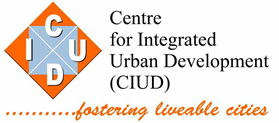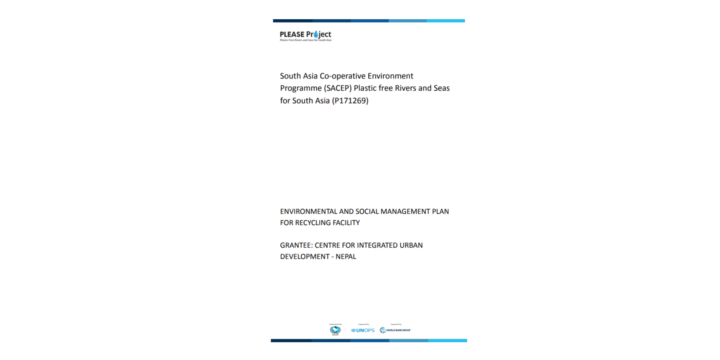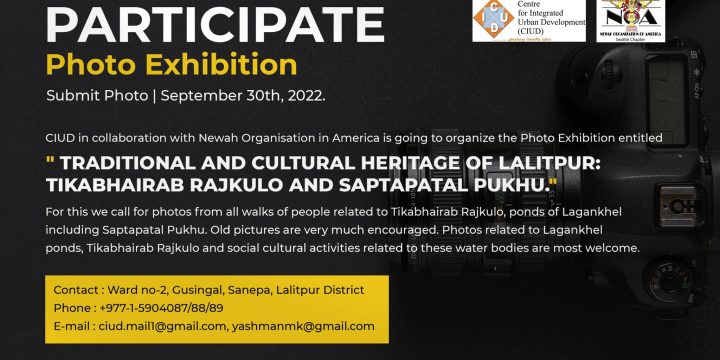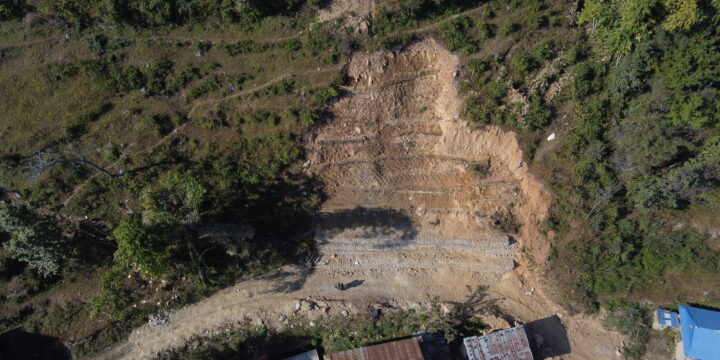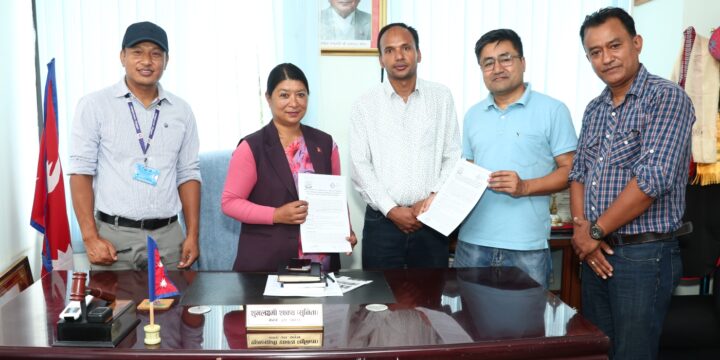
MOU signing at Kirtipur Municipality
On August 16, 2024, a memorandum of understanding (MoU) has been signed between the Kirtipur Municipality and the Centre for Integtrated Urban Development to implement the project titled Using Innovative Technology to Establish Plastic-Managed Communities and the Rivers in Kirtipur Municipality and Adjacent Wards of Neighboring Municipalities in the Kathmandu Valley. Funded by the World Bank, this project will help promote plastic managed communities in the ward number 1, 2, 3 and 4 of the municipality through the systematic collection of all kinds of plastics and recycling and upcycling them to produce various useful things that can be used both in household and community level.
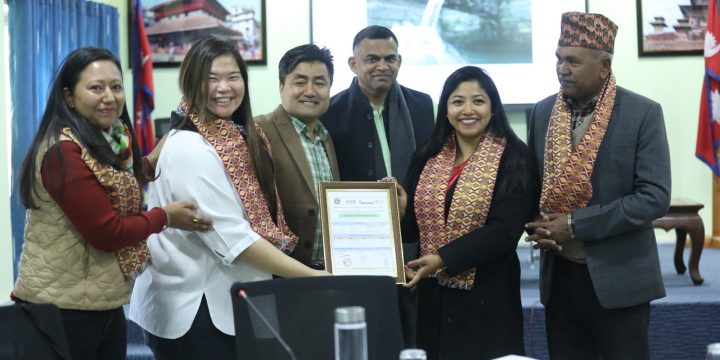
Groundwater Recharge in Balaju Park Area in the Kathmandu Metropolitan City: Addressing Increased Urban Water Demand
On January 19, 2024, the Coca-Cola Beverages Nepal, Centre for Integrated Urban Development (CIUD) and WaterAid Nepal (WAN) jointly handed over the groundwater water recharge system, which was installed within the premises of Balaju Park in ward number 16 of the Kathmandu Metropolitan City (KMC), to the deputy mayor of the KMC, Ms. Sunita Dangol. The recharge system consists of 21 filter chambers, 21 recharge wells, two disilting chambers, recharge trenches of 75 feet and seven bamboo check dams. These recharge structures are the key outputs of the project titled 'Groundwater Recharge in Balaju Park Area in the Kathmandu Metropolitan City: Addressing Increased Urban Water Demand' which was implemented by CIUD, in financial support from Bottlers Nepal Terai Limited (BNTL), and in technical support from WAN. It has been estimated…
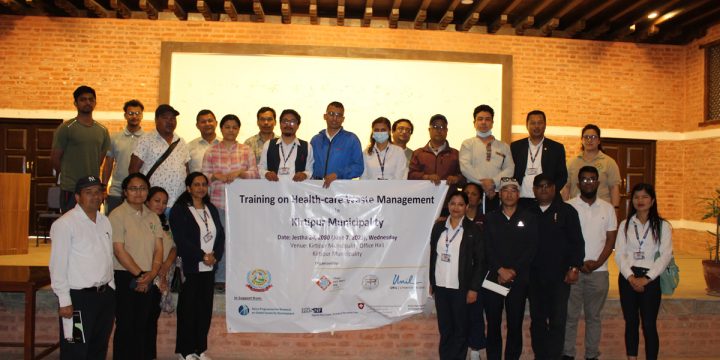
Knowledge sharing program on health-care waste management
Health-care waste management is one of the pressing health, environmental and social issues in Nepal. This extra hazardous waste needs a separate mechanism of management with special procedures and processes to treat them before mixing them with other municipal waste in order to prevent possible contamination to the hand handlers and also to minimize health and environmental hazards. Though, it has been made mandatory by the Nepal government to make the producers, such as hospitals, to manage their health-care waste by themselves, it is still a big question whether all the health-care centers have the knowledge and are following the standard procedure or not. A knowledge sharing program, therefore, was organized by Centre for Integrated Urban Development, in collaboration with Kirtipur municipality, on June 7, 2023, to impart the knowledge…
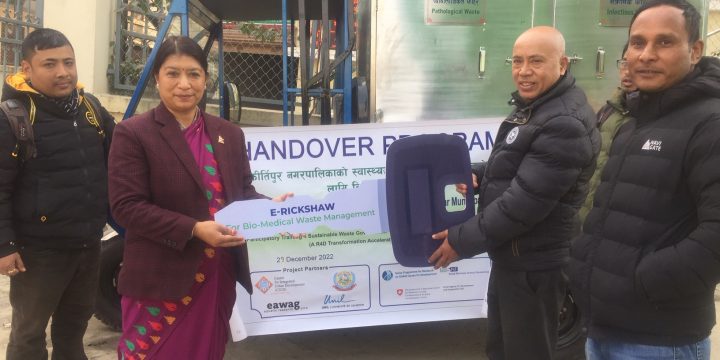
Handover of an E-Rickshaw for Centralized Bio-Medical Waste Management in Kirtipur Municipality
Under the project Participatory Training 4 Sustainable Waste Governance: South-South Knowledge Transfer Program (A R4D Transformation Acceleration Grant or TAG Project), CIUD handed over an electric rickshaw to the Kirtipur Municipality to support municipality’s centralized bio medical waste management initiation, on Dec 29, 2022. The rickshaw was handed over by Mr. Subarna N Joshi, Admin and Finance Manager, CIUD, to Ms. Shuva Laxmi Shakya, Deputy Mayor of the Kirtipur Municipality. Also, present in the program were Mr. Laxmi P Banskota, Chief Administrative Officer, Er. Rupesh Maharjan, Chairperson of Ward 1, Mr. Hira Lal Maharjan, Chairperson for ward 2, Mr. Santaman Manandhar, Head, Department of Health, and Mr. Gyan Bazra Maharjan, WASH Focal Person and Anuj Pradhan, Department of Social Development, from Kirtipur Municipality, and the representatives of Lions Club/Blood Bank…
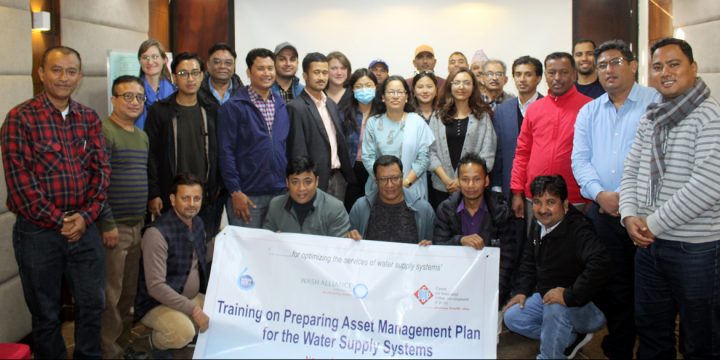
CIUD Organized a Knowledge Sharing Program on Asset Management Planning for Water Supply Systems
Under the WASH SDG Phase II program, CIUD has been promoting asset management (AMP) as a operation and management tool to ensure a long term functionality and sustainability of the water supply systems and to optimize their services. So far CIUD has prepared asset management plans for three community owned water supply systems and has validated the tool as well. In order to share the knowledge and experience of making the AMP plan with the key development partners, who have been associated with drinking water projects, and also to collect feedbacks and comments from them to make the tool precise and comprehensive, CIUD organized a two-day knowledge sharing workshop on Nov 3 and 4, 2022 at Hotel Kutumba in Lalitpur. The participants of the training were Department of Water Supply…
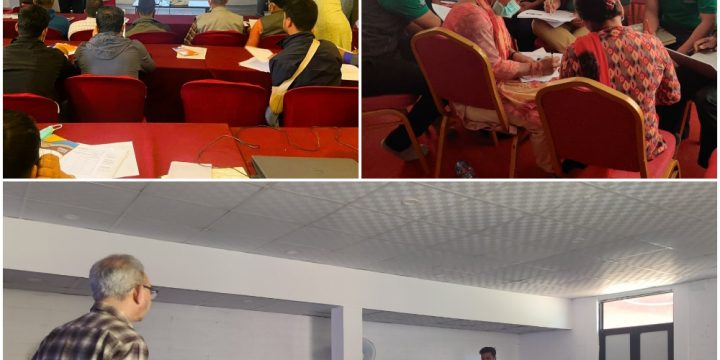
Enhancing Knowledge of Local Government on Asset Management Plan for Water Supply Systems (Photo: Aashutosh Aryal)
CIUD in close coordination with the Purnima Project (Mott MacDonald) conducted 12 days of Asset Management Plan (AMP) training for the WASH Board, WASH Units, and Water User and Sanitation Committees (WUSC) of three rural municipalities, namely Shivapuri Rural Municipality (Nuwakot), Thakre Rural Municipality (Dhading), and Shahid Lakhan Rural Municipality (Gorkha) in the month of February and March 2022. The technical team from CIUD facilitated these trainings as an expert in developing the Asset Management Plan, which is considered to be a new and innovative approach to maintain and sustain rural and urban water supply systems of Nepal.
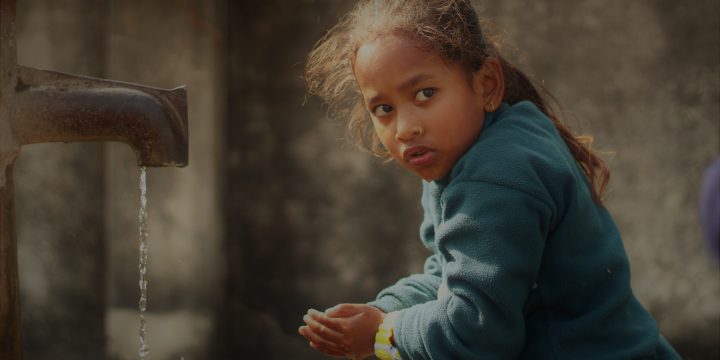
Promoting WASH in Schools ( Photo: Sibesh Desar-CIUD)
Students are forced to drink water from unprotected sources due to lack of proper WASH facilities in School
